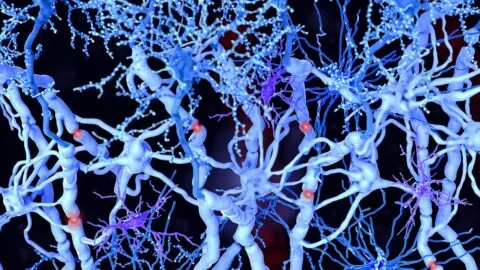June 25, 2024
For the first time, scientists have shown that the abundance of proteins needed for mitochondrial energy production in human brains is linked to perceived psychosocial experiences [1]. Picking the brains Negative psychosocial experiences have been linked to health problems by numerous studies. However, not enough is known about the concrete mechanisms at play. In this...
June 17, 2024
In Aging Cell, researchers have published data on a causal link between brain structure changes and age-related muscle loss (sarcopenia). Not just falls and frailty Sarcopenia is a key reason for the loss of independence among older people. Data on the prevalence of this gradual disorder varies by region and measurement, but some data suggests...
May 23, 2024
Publishing in Aging, a team of researchers has used a rat model to investigate a possible reason why old people are less able to learn new things. A critical receptor BrainThe brain is perhaps the most important organ in the body. While many organs are critical to our survival, the brain contains the self. It...
May 20, 2024
Researchers have discovered a compound and a brain region that may be related to chronic pain in older people and published their findings in Aging Cell. When one sense doesn't decline Aging destroys the senses over time, most notably sight and hearing [1]. Sensations related to touch are diminished as well, including cold, heat, movement,...
April 05, 2024
A new study suggests that the reason why aging is associated with obesity lies in specific neurons found in the brain [1]. Tell that to the brain It is often hard to lose weight, and it becomes harder with age. While it seems simple enough to eat less, signals in the brain are telling people to...
March 24, 2024
In Cell, researchers have published a paper outlining the different ways in which brain cells slowly mutate with aging. The genomic damage of aging Cells accumulate mutations with aging, including brain cells [1]. However, as these researchers note, most previous research into these mutations has been on neurons rather than the glia, the helper cells...






